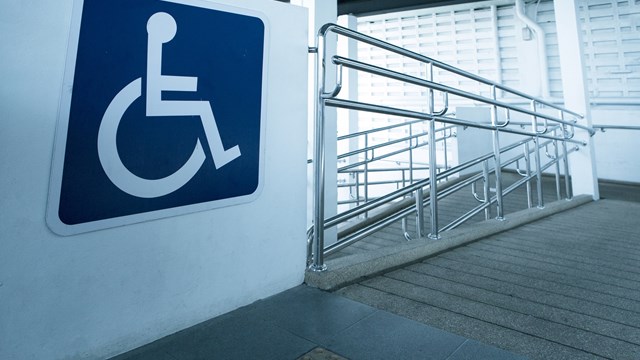
—Annoyed Shareholder
“In Nicolas v. Ocean Plaza Condo Assoc., 388 N.J. Super. 571 (App. Div. 2006), the Appellate Division determined that a valid cause of action arose where the administrative regulations under LAD are violated. In that case the Appellate Division, relying on LAD and the Federal Fair Housing Act, held that a multi-unit condominium association was required to provide a reasonable parking space accommodation in the parking lot. While this case dealt with a condominium association and not a co-op, the reasoning would likely be similar by a similar court of competent jurisdiction.
“In addition to state law, several federal laws also prohibit disability discrimination. For example, the Federal Fair Housing Act, 42 U.S.C. 3601 (“FFA”), prohibits discrimination in the sale or rental of units and any activities related to those sales. The FFA specifically prohibits discrimination against handicapped persons who are defined as persons with a physical or mental impairment, which substantially limits his or her major life activities. Clearly, the inability of a wheelchair-bound resident to enter their dwelling would satisfy the statutory requirement. In such cases, the FFA and its regulations require that reasonable modifications be made to existing premises to afford a handicapped person the full enjoyment of the premises. Obviously, lobbies, main entrances and other common areas fall under the FFA’s purview.
“The FFA and the American with Disabilities Act (“ADA”) also prohibit discrimination based upon a physical handicap. Therefore, if there is a resident or guests of residents who require access to the building for wheelchairs or baby carriages, the co-op must provide a ‘reasonable accommodation.’ That is, the co-op must make the building accessible. This can take several forms. The co-op may continue to use the wheelchair accessible service entrance by returning it to the way that it was prior to new locks and alarms being installed. The co-op may also choose to make material revisions to the main entrance to make it accessible for wheelchairs or carriages. This is obviously the more costly fix but will allow for the safety of residents and correct any discriminatory accommodation. In either event, the co-op is required to take some action to correct this problem or it may face serious consequences.
“Remedies for violations of any of the state or federal laws are wide ranging and enforcement can take several forms. First, affected residents may report the violations to the New Jersey Department of Community Affairs (“DCA”) who will deal directly with management and the board to compel proper changes. Also, a lawsuit can be filed to force the co-op to comply with the law. Of course, each of these courses of action has its pros and cons and an attorney should be consulted to discuss the specifics of your case to determine which course of action best suits your co-op residents’ needs as certain choices may have very different affects on the residents’ other rights.” n






Leave a Comment